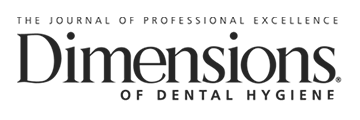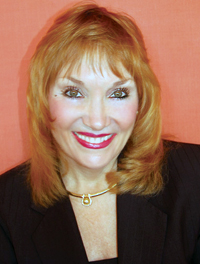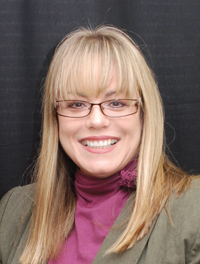 Since 1998, Michaela Nguyen, RDH, BSDH, MS, has been practicing clinical dental hygiene in general/cosmetic dentistry in the Los Angeles area. She is also the pre-clinical director and senior clinical instructor—focusing on manual and ultrasonic advanced instrumentation techniques, body mechanics, and dental photography—in the Dental Hygiene Program at Herman Ostrow School of Dentistry at the University of Southern California in Los Angeles. She co-authored the chapter on hand-activated instrumentation in the 5th edition of Darby and Walsh’s Dental Hygiene Theory and Practice. Nguyen conducts and participates in advanced instrumentation hands-on workshops throughout the country and internationally. She is a regular contributor to Dimensions of Dental Hygiene on the topic of instrumentation.
Since 1998, Michaela Nguyen, RDH, BSDH, MS, has been practicing clinical dental hygiene in general/cosmetic dentistry in the Los Angeles area. She is also the pre-clinical director and senior clinical instructor—focusing on manual and ultrasonic advanced instrumentation techniques, body mechanics, and dental photography—in the Dental Hygiene Program at Herman Ostrow School of Dentistry at the University of Southern California in Los Angeles. She co-authored the chapter on hand-activated instrumentation in the 5th edition of Darby and Walsh’s Dental Hygiene Theory and Practice. Nguyen conducts and participates in advanced instrumentation hands-on workshops throughout the country and internationally. She is a regular contributor to Dimensions of Dental Hygiene on the topic of instrumentation.
Q What do you find to be the most important factor in improving your instrumentation skills?
A I have a fundamental routine when treating patients, but I never treat every patient exactly the same way—even if it’s a patient I have treated at least four times per year over the past 22 years I have been in practice. Because each mouth is so unique with varying qualities and quantities of soft and hard deposits and different types of gingival tissue, oral anatomy, and periodontal pocket depths, being complacent with the same instrumentation skill or technique is not an option.
Since graduating from dental hygiene school, I have remained in education because I realized that the highest level of learning occurs while teaching someone else how to perform a skill. It requires analyzing techniques to help problem solve. In doing so, teaching forces me to methodically examine and break down in detail why something is being done and what can be done to achieve the optimal end result. When I’m treating patients in private practice, I do the same with myself. It’s always been my character to evaluate and assess my own skill set, determining my own strengths and weaknesses. It’s important to identify your mistakes so you can correct them. The notion of “this is how I have always done it” in the face of better techniques is the most detrimental attitude because it only hinders you from improving your clinical skills.
Hands-on workshops, online classes, journal reading, and continuing education courses on instrumentation are useful ways to keep up with the research and stay current with the latest techniques. They can help you relearn what you may have forgotten how to use, teach you what you didn’t know, and help you to avoid bad habits. Remaining open to trying new instruments, fulcrum placements, and clinician positions can help you take your clinical skills to the next level, such as gaining better access, preventing repetitive physical injury, etc.
To keep up your instrumentation skills, you must be open to learning new ways to instrument and be constantly thinking about what can be done to provide the best treatment to prevent periodontal diseases. Because complex cases or challenging areas are common, dental hygienists must be prepared and knowledgeable to tackle the most difficult of cases and achieve the best possible outcomes.
Q What advice would you give to new dental hygiene graduates who are just beginning their clinical careers?
A Take lifelong learning to heart and make it a daily practice in your professional life. Appreciate and be aware of why you just spent a few years learning about dental hygiene. Many graduates are eager to step into the real world of clinical practice and their formal education starts to become a distant memory. They get comfortable and don’t realize their level of education eventually stops after they finished school. Therefore, they must start to take the initiative and own responsibility to continue their learning as they practice the same routine day in and day out. With this ever-changing profession and world, it’s more important than ever to stay current and up to date.
The practice of lifelong learning benefits your patients and those who put their trust and health in your care. Since the appearance of COVID-19, how we treat patients has been greatly impacted. Many of my patients rely on me to keep up with the most recent evidence-based research on the latest dental treatments, products, techniques, especially with the association of oral health and COVID-19. Following and understanding the COVID-19 guidelines and knowing the best practices ease patients’ minds and gains their respect and trust. It’s such an important role to understand that I feel a sense moral and ethical duty and responsibility to continue to practice this way.
With the expectations and responsibilities as a dental healthcare provider, every procedure and recommendation provided in your care ultimately impacts each and every patient. So don’t get comfortable with your daily work life routine. Always challenge yourself to be better and learn something new that would benefit your patients. Don’t lose sight of why you decided to be a dental hygienist or dental health profession in the first place.




